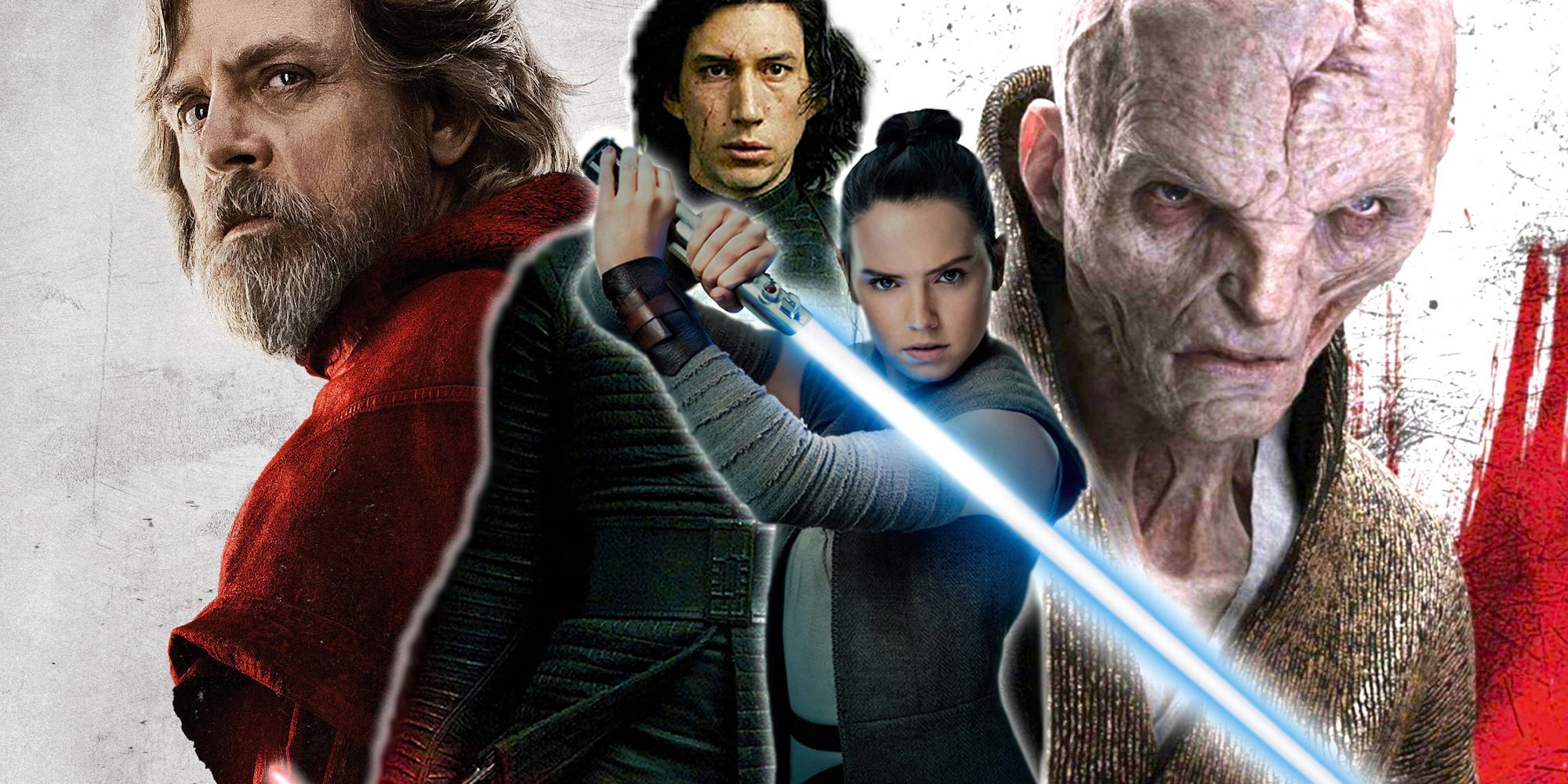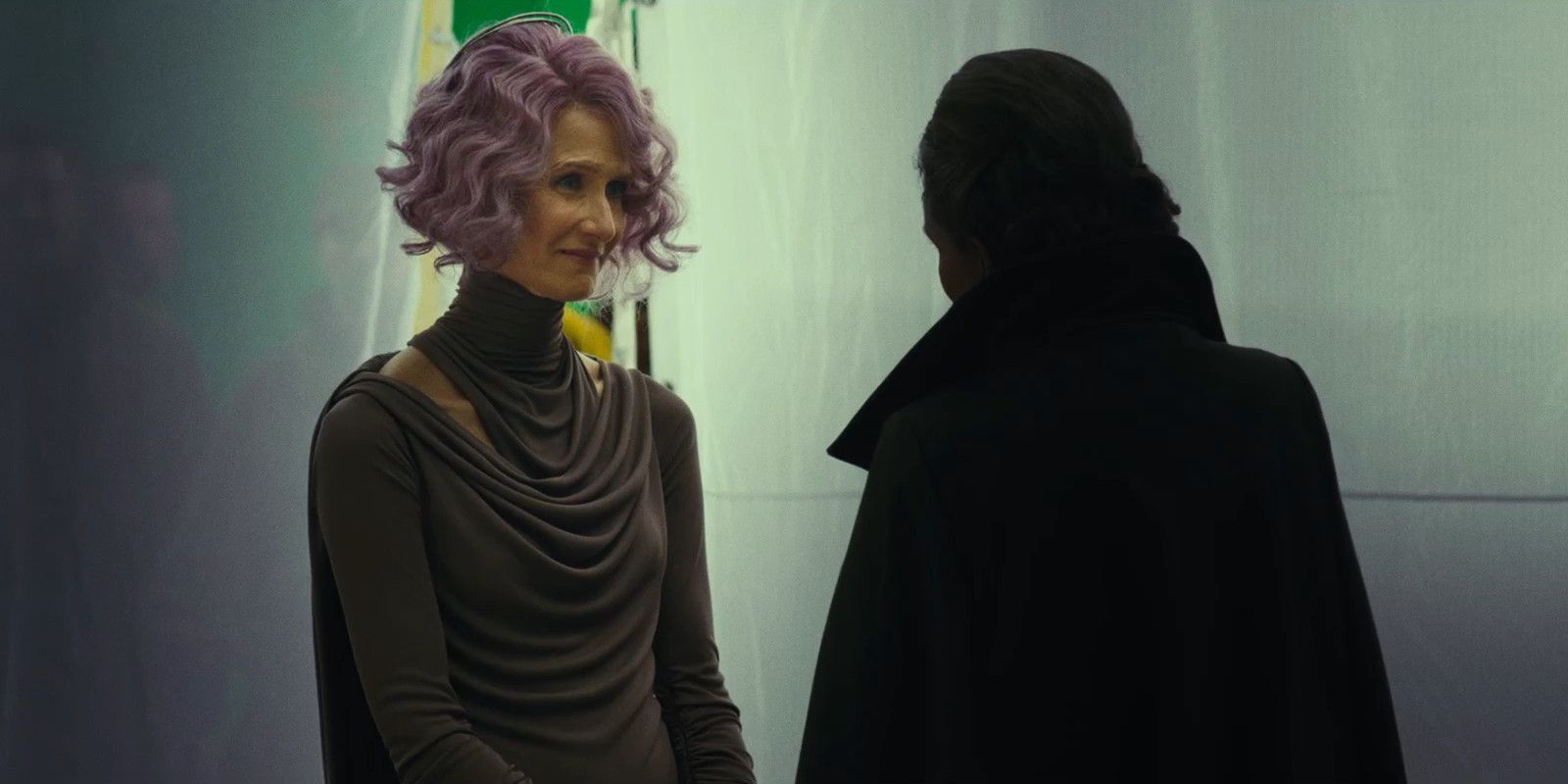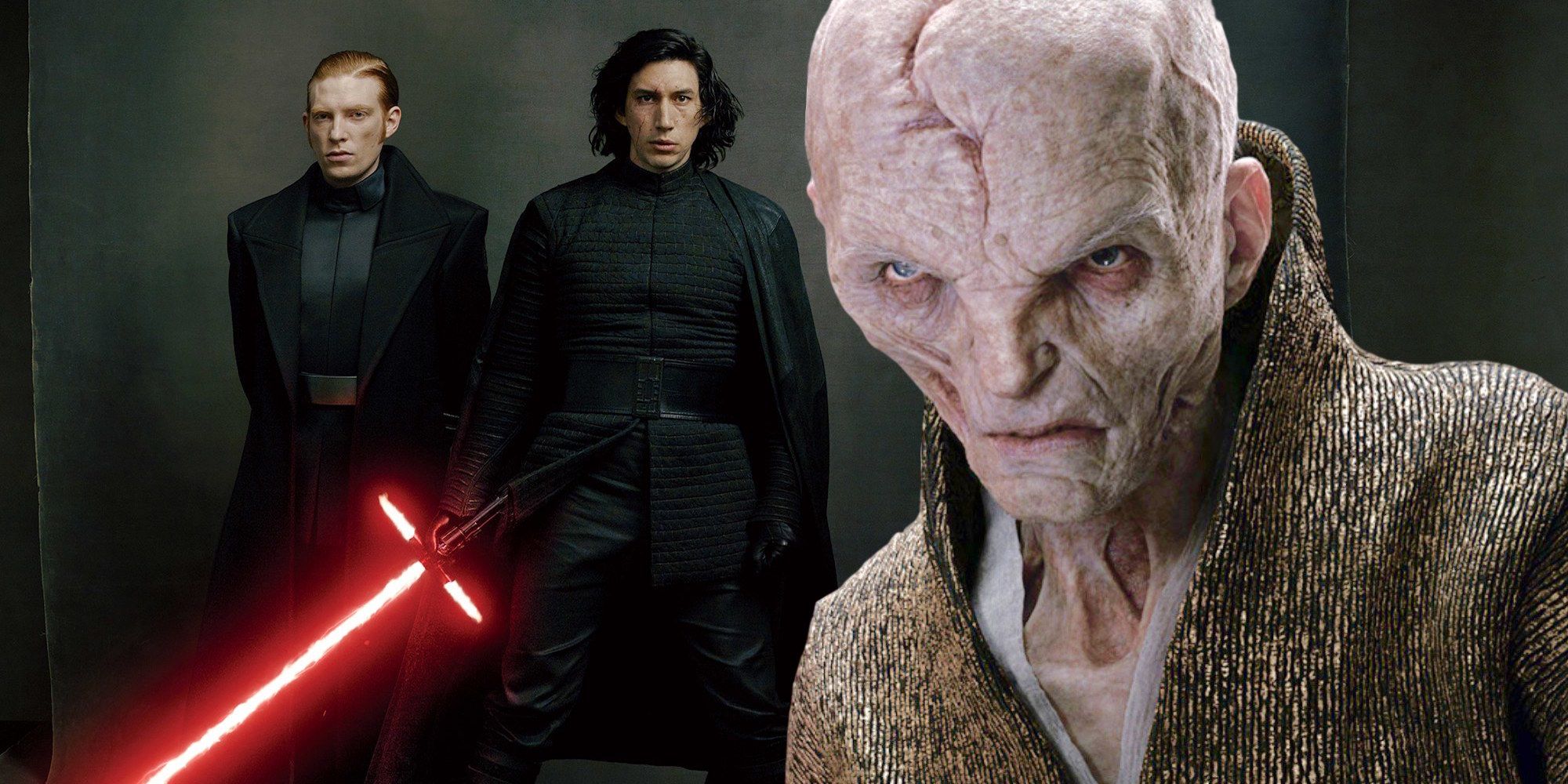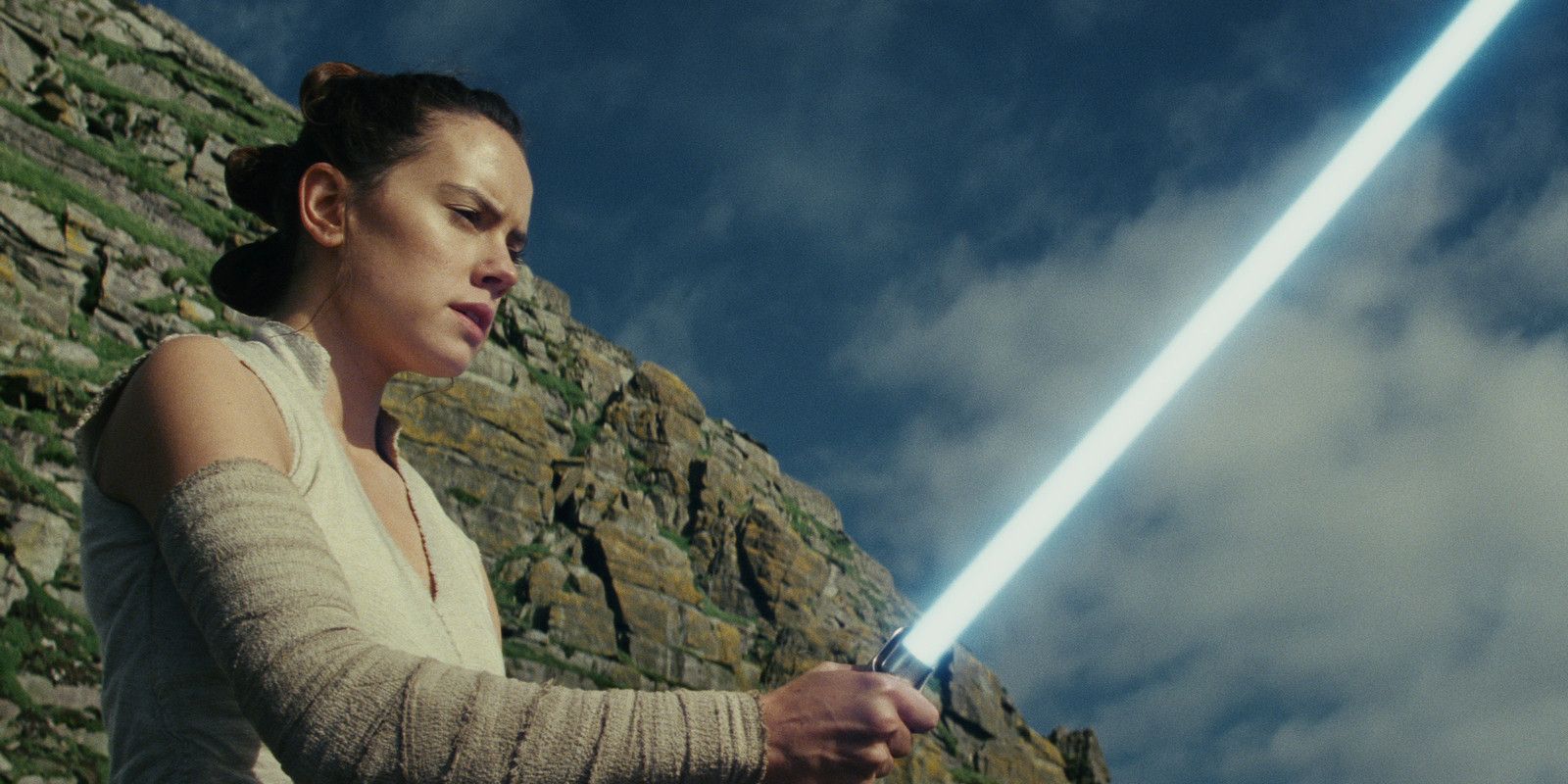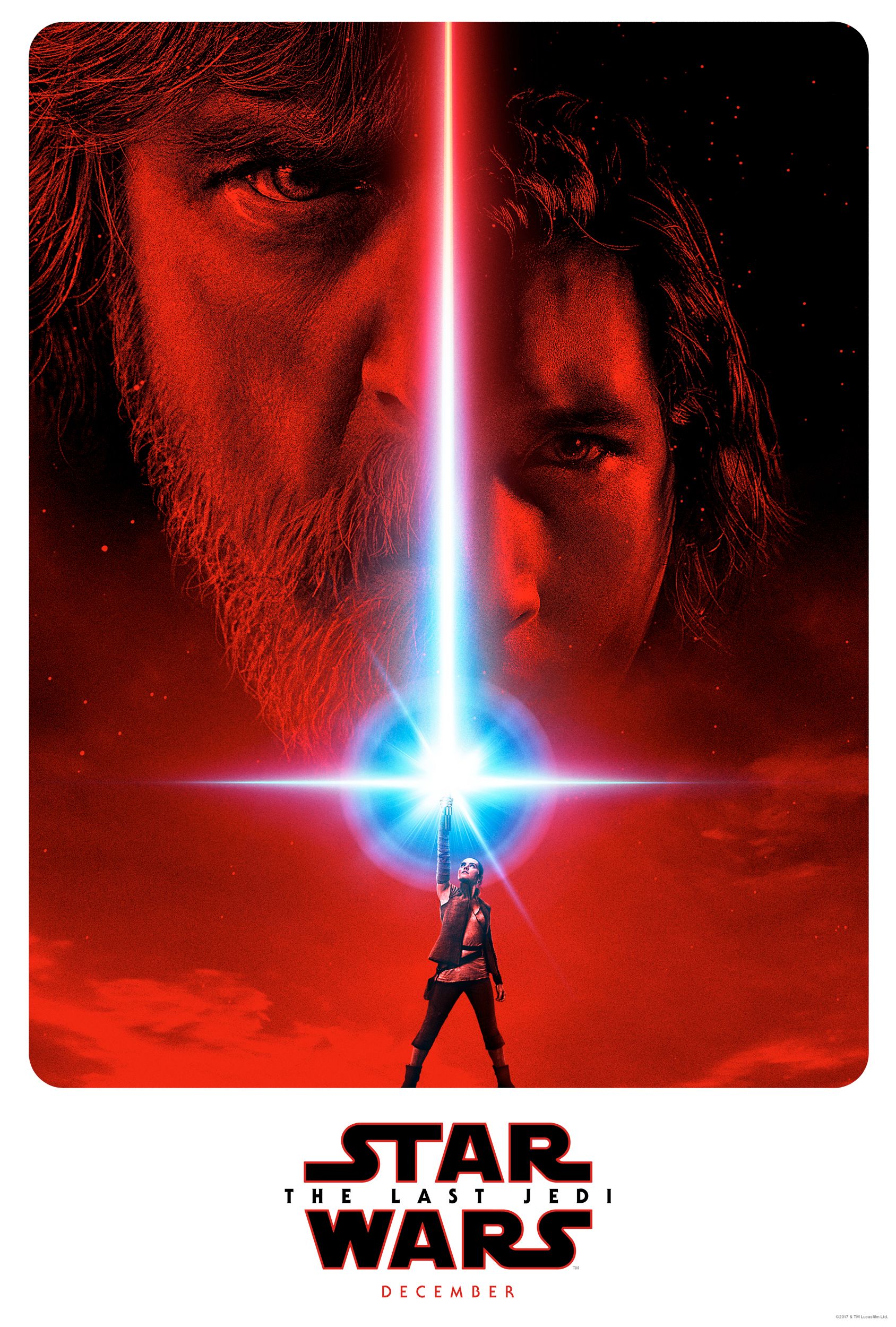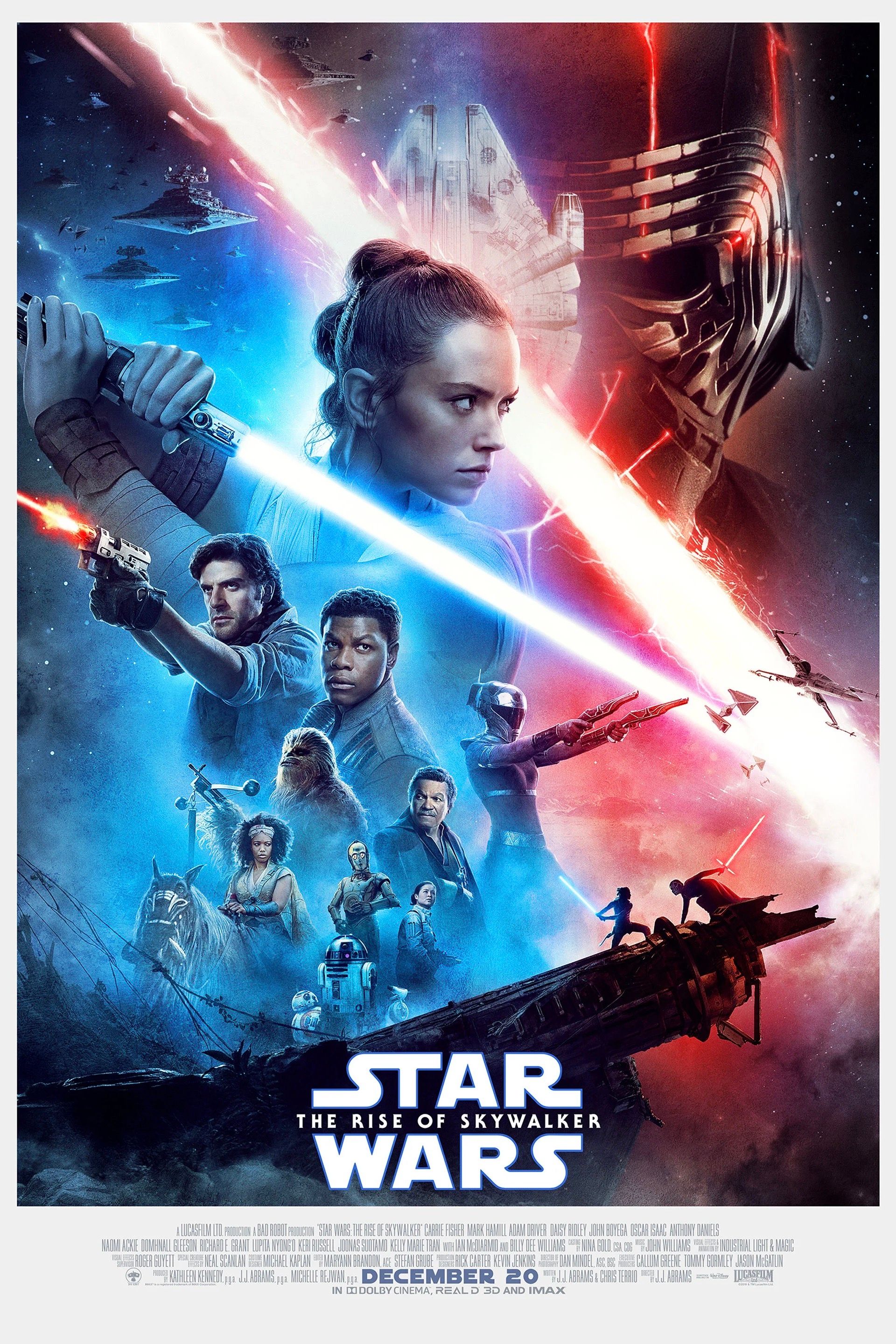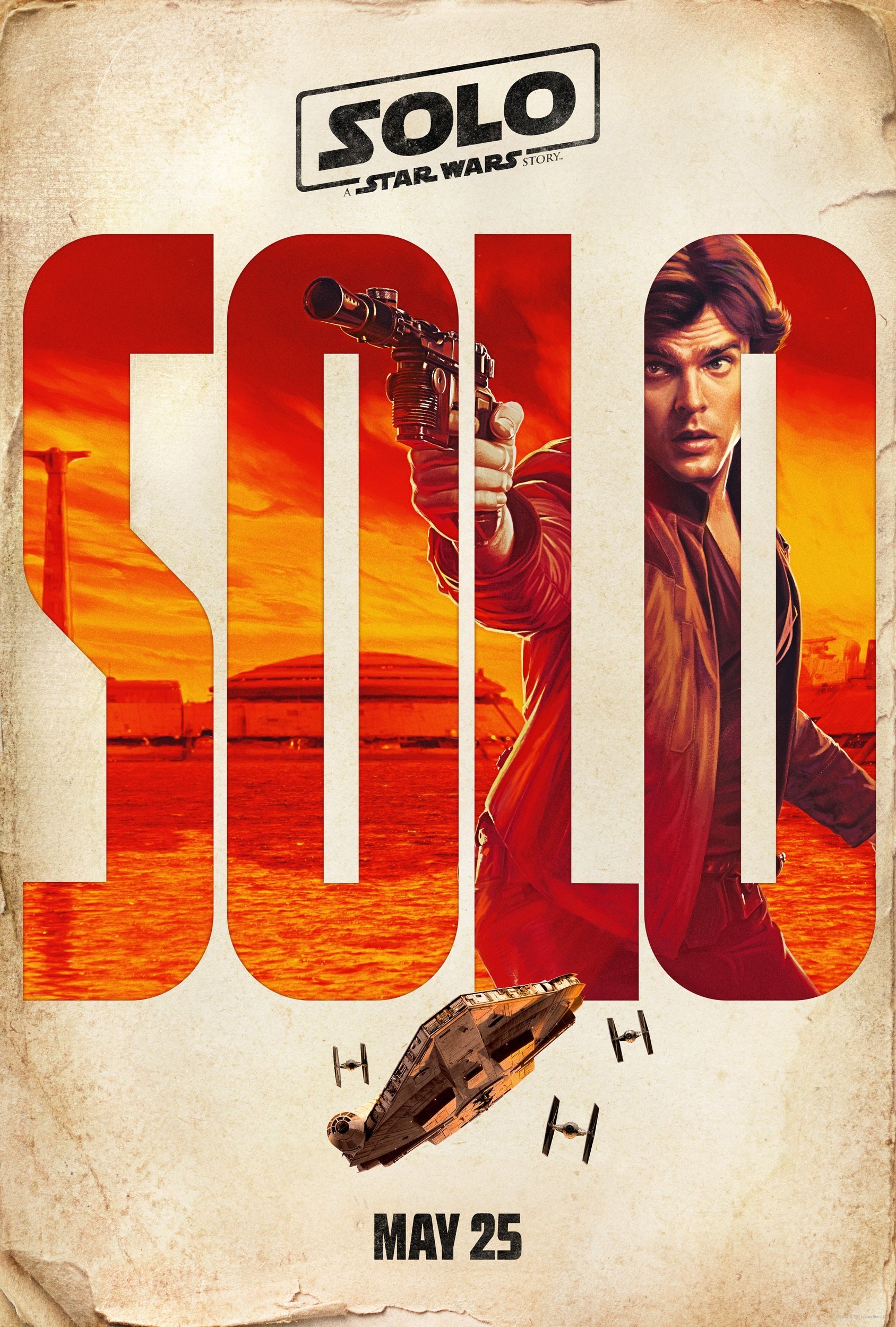Warning: MAJOR SPOILERS for Star Wars: The Last Jedi ahead!
-
Star Wars: The Last Jedi is not The Empire Strikes Back: The Redux. It does not closely adhere to that film's structure in the same manner as which The Force Awakens clung to that of A New Hope. This film isn't interested in having its story beats unfold in the ways we've come to expect from a Star Wars movie, delivering a comfortable continuation of the setup from The Force Awakens. No, The Last Jedi upends where we think this story is going to go, defying our expectations for what comes after an evil empire is struck a blow from a ragtag rebellion or for who a gifted warrior really needs to be.
The Empire Strikes Back is largely defined by being the bleakest of the original trilogy, the film in which the bad guys win and Luke learns a dark truth about himself. It is also a film that's focused heavily on the individual, Luke or Leia and Han specifically rather than the Rebellion as a whole. The Last Jedi isn't having any of that. This is a film about restoring hope, redefining purpose, and doing so while taking into account the needs of the many rather than the one (to borrow from another revered sci-fi property).
Related: Star Wars: The Last Jedi's Ending Explained
Nothing Matters More Than The Resistance's Survival
In both A New Hope and The Force Awakens, a heavily outnumbered resistance force pulls off a huge upset of a victory when they destroy the enemy's massive, planet killing weapon. The destruction of the Death Star and Starkiller Base set up the beginnings of Empire and Last Jedi, putting the Empire/First Order in full retaliation and the Rebellion/Resistance on the back foot. But beyond that initial setup, the films diverge wildly.
Empire begins with the Rebellion on Hoth, and when their location is discovered by the Empire they flee. But after that point the story mostly sticks with the individual and personal adventures of Luke, Leia, and Han. Luke is setting off to find Jedi Master Yoda, while Leia and Han are trying to reunite with the Rebel fleet. The Last Jedi begins similarly, with the First Order having discovered the Resistance's base and them needing to flee, but that is where the similarities end. Luke seeks out Yoda so that he can be trained as a Jedi and Leia and Han's adventure is of overcoming adversity so they can rejoin the fight. These are important journeys for their characters that develop them in significant ways, but they are on the whole about them as individuals and not the fate of the Rebellion or the galaxy at large.
The Last Jedi approaches its characters' arcs differently, giving them personal journeys, yes, but also keeping the focus squarely on the survival of the Resistance at all costs. Rey goes to Luke because Leia told her to bring him back to help the Resistance; Finn and Rose leave to find the master code breaker to help the Resistance escape the First Order's tracking; Poe leads a mutiny because he believes Holdo's decisions are endangering the Resistance; Holdo's whole plan is to hang on long enough so they can reach a planet where the transports can escape to, carrying however much of the Resistance still survives with them; and once on Crait, the plan is to hold on until help arrives, and once it does, they use the opportunity to escape so that can live to fight another the day.
Related: Here's How Star Wars 9 Can End Leia's Story Perfectly
The Rebellion is never at risk of total annihilation in The Empire Strikes Back in the same way the Resistance is throughout all of The Last Jedi. In fact, after fleeing Hoth, the Rebellion is barely even a factor in Empire, making the striking back the Empire does in the film more about Darth Vader's goal of capturing Luke than it is anything else. It can be argued that Snoke's desire to capture and kill both Luke and Rey, as well as Kylo's wish to turn Rey to the dark side, parallels Vader's plans, but it's the Resistance's survival and not merely the survival of Rey or Luke that matter most in the end.
The Bad Guys Don't Win
Whenever briefly summarizing the original trilogy, The Empire Strikes Back is usually explained as the one where the heroes lose. And for the most part, that's true. Though the Rebellion as a whole is minimized in the sequel, we aren't given the impression they've won any great victories since destroying the Death Star. After being captured by the Empire on Cloud City, Han is frozen in carbonite and given to Jabba the Hutt. Luke doesn't win his duel with Vader, and instead loses his hand, has his faith in his mentor rocked, and barely escapes with his life. It isn't the bleakest ending of any Star Wars film (that honor goes to Revenge of the Sith), but it is certainly without the hopeful and optimistic spirit that comes through in the endings of A New Hope and Return of the Jedi.
The Last Jedi is also a darker and at times a more sobering film than The Force Awakens, but its ending is anything but bleak. The whole driving force of the movie is a desire to restore hope, to believe that if even just a few rebels remain, the Resistance cannot be defeated. For them, merely surviving in The Last Jedi is a victory in a way it isn't in Empire because the stakes for the Rebellion are never as high as they are here. Even when featuring a major character death, the ending of The Last Jedi makes a point of depicting it in a hopeful manner, referring to Luke's death as peaceful and purposeful and not sad.
On top of this, the bad guys just straight up do not win in the end of The Last Jedi. They have every advantage and still they utterly fail in wiping out the Resistance. There are moments when the Resistance is able strike a blow, as with the destruction of the Dreadnaught or Holdo's jumping to lightspeed through Snoke's ship, but all these actions do is delay the inevitable. By the the time this chase reaches Crait, it should be all over for the Resistance. And still the First Order fails. The entire Resistance is within that hanger and with all their artillery, their fancy AT-M6 walkers, and portable Death Star cannon, they can't even wipe out the less than 100 rebels hiding in that base.
Related: Star Wars Theory: Is Snoke The FIRST Jedi?
Now, the reasons for the First Order's failure are more complicated than just 'they're a crappier version of the Empire' because it relates to Kylo Ren's decision to kill Snoke and his inability to think clearly once Luke arrives on the scene. His actions are what lead the First Order to screw up so badly. Had Kylo remained loyal to Snoke, the Battle of Crait would have ended very differently and The Last Jedi would have ended with the bad guys winning, just like Empire. Instead, Kylo's hubris and Luke's sacrifice make it possible for the Resistance to survive, stealing a victory right out of from the under First Order. And as added punctuation to this uplifting ending, The Last Jedi chooses to focus its final shot on the next generation of rebels and protectors of the light, showing the Rebellion reborn and that hope for the future is restored.
Rey Isn't A Secret Anyone
Beyond its recognition as being the darkest of the original Star Wars films and the one where the heroes lose, The Empire Strikes Back is best known as the one in which it's revealed that Darth Vader is Luke's father. It is without a doubt one of the biggest surprises ever put to film, becoming very much the template for how to shock an audience with an unexpected twist. Since then, Star Wars has conditioned audiences to expect these kind of revelations. In Return of the Jedi, the film doubles down on the familial connection by having it turn out Leia is Luke's twin sister, and in the prequels, Anakin is revealed to not only be the "chosen one" but his descent in to darkness is tied directly to the rise of the Empire.
The Force Awakens doesn't completely do away with this notion, with Leia and Han Solo's son, Ben/Kylo Ren be the film's surrogate for Darth Vader and therefor keeping much of the central conflict tied to the Skywalker family. But then there's Rey, this trilogy's mysterious new hero. She doesn't know who her parents are or where she came from or why she has the powers she does. Rey's backstory, or really lack there of, is practically asking for her to turn out to be somebody - somebody, who like Anakin and Luke, is destined for greatness because of some prophecy or lineage. And in the years since The Force Awakens, the internet has been flooded with theories suggesting her to be a secret Skywalker, a Kenobi, or even a Palpatine. But she's none of those things. Rey isn't anything other than what she has always been: a brave young woman whose is strong in The Force and will use that power to protect those she loves.
That Rey isn't a secret anything, just a nobody from Jakku who found herself answering the call to adventure is perhaps the biggest divergence The Last Jedi makes from The Empire Strikes Back. In A New Hope, there really isn't anything that specifically implies how significant Luke is - he's just a Force-sensitive farmboy whose family happens to purchase the droid the Empire is hunting. There's nothing in that film which indicates he's the son of Darth Vader or that old Ben Kenobi was his secret guardian or that's he's connected at all to the larger struggle between the light and the dark. All of that is established in the films that came after, beginning with Empire and the reveal that Luke is the son Vader.
Related: What Does The Last Jedi Reveal About Rey's Parents?
So it would stand to reason that come The Last Jedi there would be some reveal of Rey, like Luke before her, sharing a deeper connection to the central struggle of this trilogy. But she doesn't. Her parents were junkyard traders who sold her for drinking money, and while that's been disappointing to some fans, it doesn't make her any less of the hero or less deserving of having her story told. It's simply different from what so much of the Star Wars saga has conditioned us to expect. With this, The Last Jedi yet again subverts where we think this story goes and does away with idea that heroes need to fulfill a destiny or prophecy to be true heroes.
-
The Last Jedi isn't a retread of The Empire Strikes Back, not even close. If at all, The Last Jedi uses how we think this trilogy is going to unfold to create some of the most surprising and dramatic shifts in storytelling since The Empire Strikes Back. When Luke says, "This isn't going to end the way you think," he's as much warning Rey against thinking she can redeem Kylo Ren, as he is warning audiences to expect the unexpected. The Last Jedi asks fans to open themselves up to new possibilities, and rewards those who do with a promise that Star Wars can be so much more than what came before.
More: The Last Jedi Is the Most Divisive Star Wars Movie Between Fans & Critics

